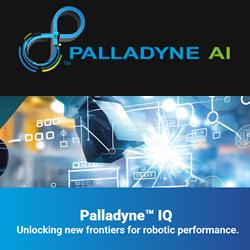Khronos to Create SYCL SC Open Standard for Safety-Critical C++ Based Heterogeneous Compute
New Working Group designing derivative of the SYCL framework for high-level parallel programming to streamline safety certification in automotive, avionics, industrial, and medical markets; Open call for industry participation.
Beaverton, OR - March 15, 2023 - Today, The Khronos® Group, an open consortium of industry-leading companies creating advanced interoperability standards, announces the creation of the SYCL™ SC Working Group to create a high-level heterogeneous computing framework for streamlining certification of safety-critical systems in automotive, avionics, medical, and industrial markets. SYCL SC will leverage the proven SYCL 2020 standard for parallel programming of diverse computing devices using standard C++17. Over the past year, the safety-critical community has gathered in the Khronos SYCL Safety-Critical Exploratory Forum to build consensus on use cases and industry requirements to catalyze and guide the design of this new open standard. The SYCL SC Working Group is open to any Khronos member, and Khronos membership is open to any company.
"Safety-critical markets such as automotive and avionics are seeing dramatic increases in software and hardware complexity, often automating advanced functions traditionally performed by humans. The need for sophisticated, high-performance compute acceleration drives the need for powerful, high-level programming abstractions—resulting in strong industry interest in evolving SYCL to meet the requirements of safety-critical systems," said Verena Beckham, vice president of safety engineering at Codeplay and SYCL SC pro tempore co-chair. "We are excited to launch the SYCL SC Working Group that will create an open standard that unlocks the SYCL acceleration model to reduce development and certification costs for safety-critical industries, while improving programming productivity."
SYCL SC will bridge the gap between low-level APIs such as Vulkan® SC and the C++ high-level language to streamline the development and safety certification of systems incorporating sophisticated parallel processing acceleration, including Artificial Intelligence and Machine Learning pipelines. SYCL SC will leverage Vulkan SC design principles where appropriate and aim to enable open standards that can streamline system safety certifications at every level of the software stack.
"SYCL SC will be a key component of many robust, safety-critical compute stacks. With Vulkan SC and OpenVX™ the industry already has access to low-level compute, and high-level computer vision and machine learning APIs. SYCL SC is the missing link. It will bring accelerated computation to systems requiring functional safety with a C++ interface. With SYCL SC, Khronos is expanding the choice of programming abstractions for safety-critical systems to suit different market and developer needs," said Kenneth Wenger, senior director of research & innovation at CoreAVI and SYCL SC pro tempore co-chair.
SYCL SC will adhere to the new MISRA C++ 202X guidelines and align with safety certification standards such as RTCA DO-178C / EASA ED-12C (avionics), ISO 26262/21448 (automotive), IEC 61508 (industrial), and IEC 62304 (Medical).
The SYCL SC Working Group has already gained support from industry leaders including AMD, Arm, Barcelona Supercomputer Center, Codeplay, CoreAVI, Intel, Intellias, Mercedes-Benz, and Qualcomm Technologies Inc. Any organization wishing to participate in the SYCL SC Working Group is invited to become a Khronos member. Please visit our Member page or contact Membership Services at memberservices@khronosgroup.org for more information. SYCL SC Working Group members will present a session on "What's New in SYCL for Safety-Critical Systems," at the upcoming International Workshop on OpenCL and SYCL Conference (IWOCL) taking place on April 18-20 in Cambridge, UK.
Registration is now open.
Industry Support for SYCL SC
"The deployment of autonomous systems is increasingly dependent on open standards and a robust software and hardware ecosystem that places safety as its top priority," said Tom Conway, senior director of product management, Automotive Line of Business, Arm. "We understand the importance of industry collaboration to help ease software complexity for developers, and look forward to contributing our expertise in functional safety and software standardization to help define the SYCL Safety-Critical open standards."
"Recently, we have seen SYCL's popularity take off in the high-performance computing industry, which is evidence of SYCL's ability to provide a performant, open and portable solution to heterogeneous programming. Now we are looking forward to helping unlock the SYCL programming model and all its benefits to safety-critical industries as well," said Andrew Richards, CEO, Codeplay Software.
"SYCL Safety Critical extends open accelerator programming to applications where safety critical standards apply," said Joe Curley, vice president and general manager of software products at Intel. "We are pleased to support this working group to define a productive, open, cross-platform programming framework that meets the needs of safety-critical developers."
"Mercedes-Benz Research & Development North America is delighted to join the SYCL SC Working Group to strengthen industry adoption of safety-critical development standards, as ADAS/AD systems harness heterogeneous computing hardware," said Sundararajan Ramalingam, vice president Autonomous Driving at Mercedes-Benz Research & Development North America.
About SYCL
SYCL is a standard C++-based heterogeneous parallel programming framework for accelerating High-Performance Computing (HPC), machine learning, embedded computing, and compute-intensive desktop applications on a wide range of processor architectures, including CPUs, GPUs, FPGAs, and tensor accelerators.
About Khronos
The Khronos Group is an open, non-profit, member-driven consortium of close to 200 industry-leading companies creating advanced, royalty-free, interoperability standards for 3D graphics, metaverse, augmented and virtual reality, parallel programming, vision acceleration and machine learning. Khronos activities include 3D Commerce™, ANARI™, glTF™, Kamaros™, NNEF™, OpenCL™, OpenGL®, OpenGL® ES, OpenVG™, OpenVX™, OpenXR™, SPIR-V™, SPIR-V™, SYCL™, Vulkan®, and WebGL™. Khronos members drive the development and evolution of Khronos specifications and are able to accelerate the delivery of cutting-edge platforms and applications through early access to specification drafts and conformance tests.
Featured Product

